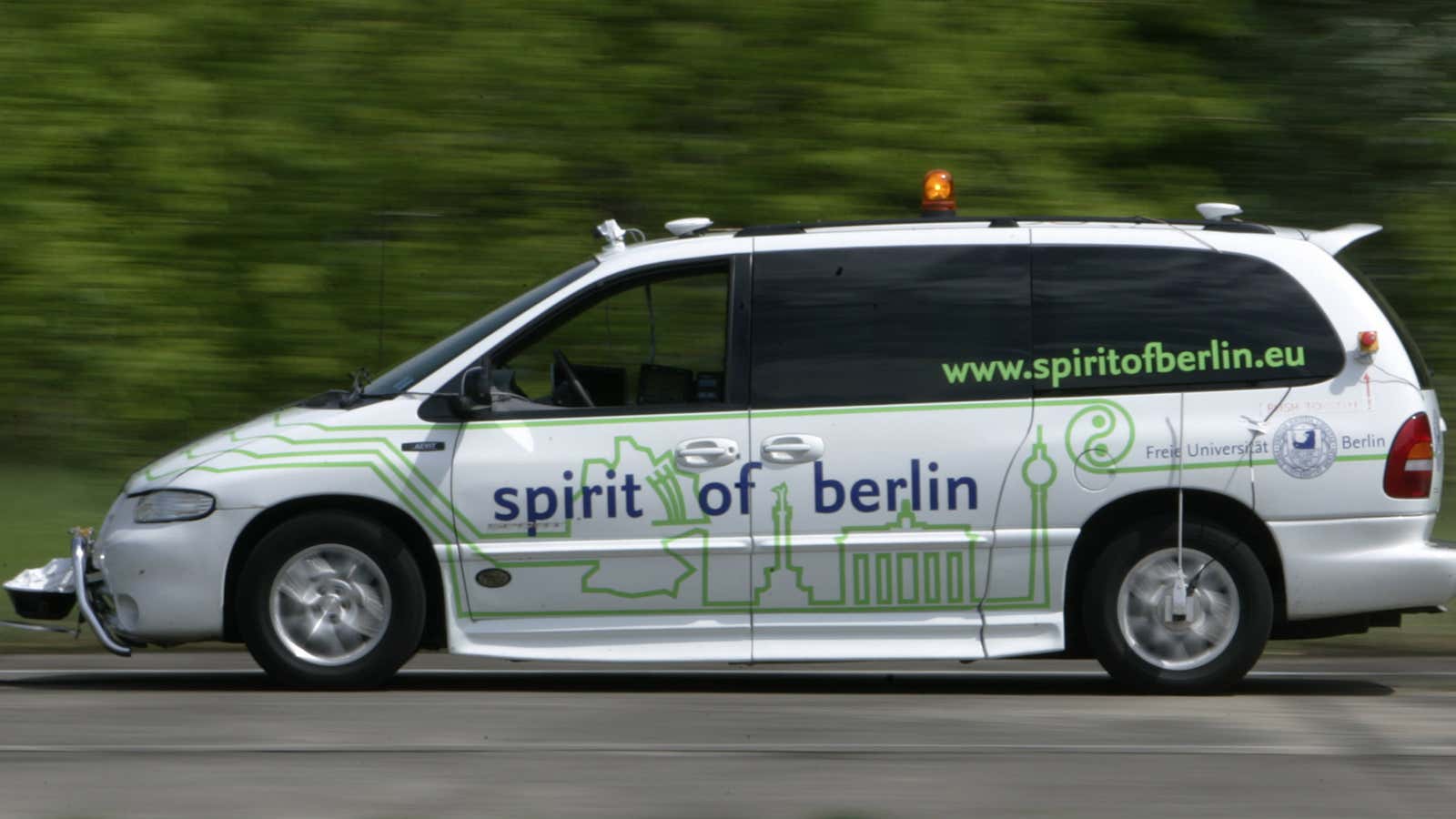This morning, the British government announced an infrastructure plan (pdf) that, somewhat optimistically, projects £375 billion ($612 billion) of spending by public and private entities over the next decade or so (the timeline is fairly vague). Some of the headline announcements include £25 billion in investment spending from the insurance industry, not a sector known for its impact on infrastructure, and that the British government will sell off the 40% stake it owns in Eurostar, the train company providing high-speed services between London and the continent.
But hidden among the details is a vision to turn Britain into the center of the driverless car revolution. The size of the investment is tiny—it involves creating a £10 million incentive for a British town or city to become a testbed for driverless cars. (Milton Keynes, a characterless town with wide roads and a pod-based transit system in the works, may be the ideal candidate.) More significant is that the government is willing to change all the rules to ensure it isn’t left behind as a hub for the development of the technology. From the report (emphasis is ours):
To ensure that UK industry and the wider public benefit from the development of driverless cars, the government announces in the National Infrastructure Plan that it will conduct a review, reporting at the end of 2014, to ensure that the legislative and regulatory framework demonstrates to the world’s car companies that the UK is the right place to develop and test driverless cars. It will also create a £10 million prize for a town or city to develop as a testing ground for driverless cars [p. 65].
The big question for driverless cars hasn’t been money—pretty much every major auto-manufacturer is investing in research and development—but regulation. Nobody is quite sure how liability works and government departments around the world have been wrestling with how to create an environment to allow innovation in what they see as a beneficial but potentially unsettling technology. In the US, only a handful of states allow driverless cars to run on their roads. Britain is betting that the right regulation could attract companies and bring high-tech jobs.
But Britain is not the only country with this idea. French president Francois Hollande laid out a 10-year-plan in September that focused heavily on driverless cars. German researchers have been testing their autonomous vehicles on the streets of Berlin. And Volvo has received permission from Swedish authorities for large-scale test of some 100 cars in 2017. The race is on.




